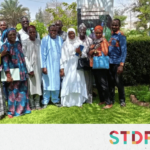Suriname strengthens SPS systems
- 20/12/2022
- Posted by: Gaetan Dermien
- Category: News, Suriname

Following a one-day workshop in Paramaribo on COLEACP’s new Rapid SPS Assessment Tool (R-SAT) in May 2022, COLEACP is supporting via the FFM SPS programme, two key interventions designed to strengthen the national SPS systems of Suriname:
- Review and update the legislation of Suriname for consistency with the International Plant Protection Convention (IPPC) and provisions for establishing a Parastatal NPPO
An expert review of the current plant health law of Suriname has begun, to ensure consistency with the IPPC legislation and identify necessary modifications to the technical content. Next, the legal description and management structure of the National Plant Protection Organization (NPPO) will be reviewed, including consideration of future financing options required for operation. To achieve this, a COLEACP expert is holding meetings with the main stakeholders to build consensus.
- Draft the New Food Law of Suriname
Suriname’s current Food Law dates back to 1911. The COLEACP expert will review the relevant national legislation, act in an advisory capacity to the management of the National Institute for Food Safety (NIVS) on all aspects of the food law and its governance structure and study the policy documents underpinning the reform of the food law, to contribute towards drafting the new food law. As with the first initiative, this will include extensive stakeholder consultations.
R-SAT provides a practical, step-by-step guide to assist ACP countries in their assessment of national SPS systems to strengthen them in line with international standards and regulations. R-SAT is designed to be complementary to tools such as the FAO and WHO guidelines, allowing rapid preliminary assessment and generating information that can be fed into these more in-depth evaluations as necessary.
This activity is supported by the Fit For Market SPS programme, implemented by COLEACP within the Framework of Development Cooperation between the Organisation of African, Caribbean and Pacific States (OACPS) and the European Union.

![EU and GB approval changes (January-March 2025) 9-FFM+-[ENG]](https://news.colead.link/wp-content/uploads/2024/06/9-FFM-ENG-150x150.jpg)

